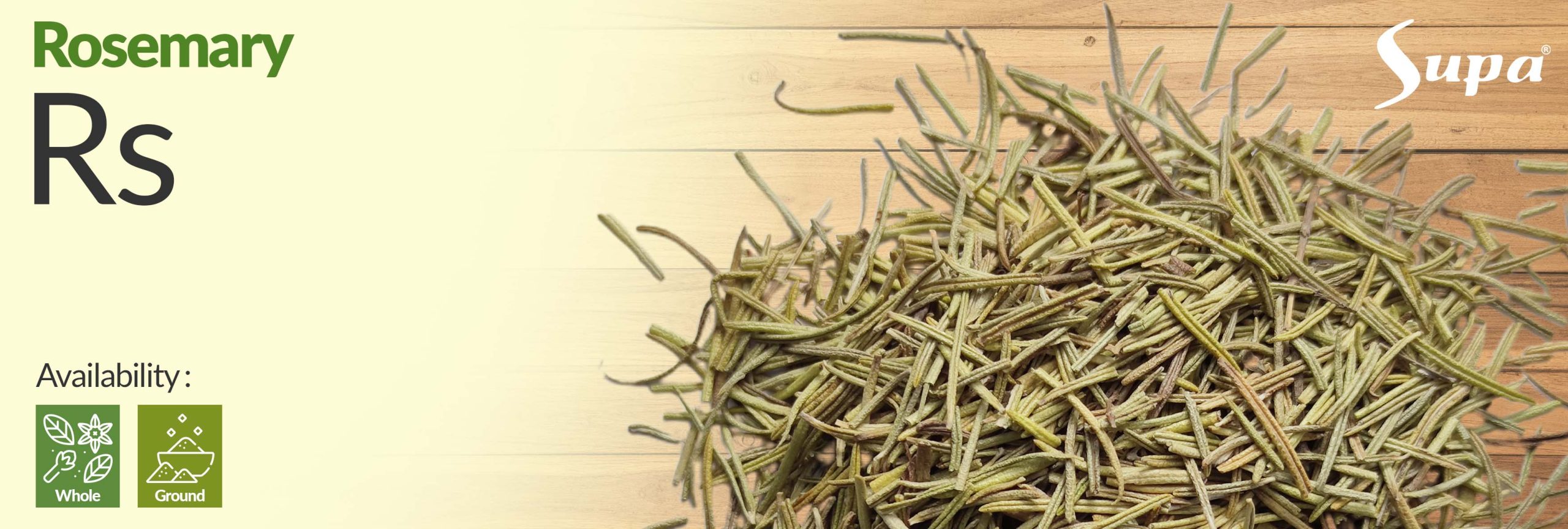
Rosemary, scientifically known as Rosmarinus officinalis, has a storied history that stretches back to ancient civilizations and continues to influence modern cuisine and well-being. Native to the Mediterranean region, this fragrant herb was revered by the ancient Greeks and Romans for its aromatic properties and potential health benefits. Its name is derived from the Latin words “ros” (dew) and “marinus” (sea), reflecting its ability to thrive in coastal climates.
Throughout history, rosemary has been associated with various cultural and symbolic meanings. It was used in ancient times as a symbol of remembrance and fidelity, often incorporated into wedding ceremonies and funerals. Additionally, rosemary was thought to have medicinal properties, with traditional uses ranging from improving digestion to alleviating headaches. Its aromatic oils were also utilized for perfumes and incense.
In modern culinary applications, rosemary is celebrated for its bold and distinct flavor that pairs well with roasted meats, potatoes, bread, and more. Beyond its culinary uses, research suggests that rosemary may have potential cognitive and antioxidant benefits. The enduring popularity of rosemary in both traditional and contemporary contexts showcases its remarkable journey from ancient herb gardens to modern kitchens and herbal remedies, embodying the connection between flavor, tradition, and health.
Flavor: Rosemary has a strong and robust flavor with notes of pine, earthiness, and a hint of citrus. The flavor can be described as woody, resinous, and slightly peppery. It is a versatile herb that adds complexity to both savory and some sweet dishes. Taste: The taste of rosemary is characterized by its intense and aromatic profile. The taste is both herbaceous and slightly bitter, contributing to a well-rounded and savory flavor experience. The bitterness is usually balanced by the herb's aromatic qualities. Aroma: Rosemary is renowned for its rich and fragrant aroma. The scent is reminiscent of pine and fresh herbs, with a touch of earthiness. The aromatic oils in rosemary are released when the leaves are crushed or chopped, enhancing the overall sensory experience of dishes.
Culinary Flavoring: Rosemary is a popular herb used in cooking to add flavor to a variety of dishes. It pairs well with roasted meats, poultry, and vegetables, lending a savory and slightly piney aroma to the food. Infused Oils and Vinegars: Rosemary can be used to infuse oils and vinegars, creating flavorful bases for dressings, marinades, and cooking. The infused oils can add a subtle rosemary essence to your dishes. Herbal Seasoning: Rosemary is often included in spice blends and rubs for meats and fish. Its earthy flavor enhances the overall taste of the dish, especially when combined with other complementary herbs and spices. Aromatherapy and Essential Oil: The essential oil extracted from rosemary is used in aromatherapy for its invigorating and uplifting qualities. It's believed to improve concentration, memory, and mental clarity when used in diffusers or massage oils. Gardening and Landscaping: Rosemary is also cultivated as an ornamental plant in gardens and landscapes due to its aromatic leaves and attractive appearance. It can be used as a decorative shrub, hedge, or potted plant, adding both visual and sensory appeal to outdoor spaces.
Origin : Indonesia Botanical Name : Salvia rosmarinu Composition : Rosemary Color : Brownish Green Moisture Content : Max 12% Shelf Life : 12 Months Loadability : 20 FCL Package : Carton Packing *For more detailed specifications, please feel free to contact us.
Company Profile Brochure PDF


